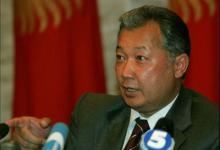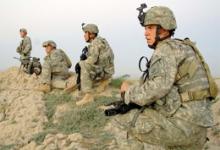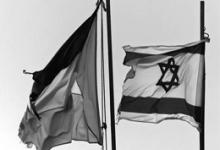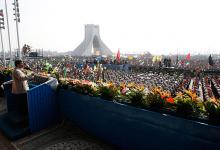Former President of Kyrgyzstan asked to turn himself over
The newly established interim government of Kyrgyzstan called for the former President Kurmanbek Bakiyev to turn himself over and face trial for the deaths of at least 82 people during the uprising in Bishkek last Wednesday. By Philip Pilkington.
The government said that if the former President refused to do so they would launch a special operation in order to capture him. The new administration said that Bakiyev may face detention but if he were to turn himself over they may be able to broker a deal that will allow him to leave the country.





